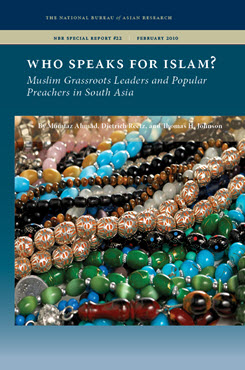Muslim Grassroots Leaders in India
National Issues and Local Leadership
This essay examines recent trends in the evolution of traditional and nontraditional forms of Muslim leadership and association in India marked by wide diversity and a notable absence of national leaders.
EXECUTIVE SUMMARY
MAIN FINDINGS
- Traditional and historical Muslim networks in India, such as the Sunni madrasah traditions of the Deobandis and Barelwis, some reforming sects (Ahmadiyya), Shia groups, and modern Muslim schools, have adopted new leadership formats. These include utilizing new forms of communication, pursing non-religious agendas focused on education and development, and networking traditional religious schools with secular and female education.
- Religious mobilization follows the north-south divide in Indian society. Although the historical Muslim networks are centered in north India, many groups in the south and east Indian states pursue their own local agendas.
- The modernization of Muslim leadership has led to new bodies and institutions that are separate from established sectarian religious associations. These modern organizations can be divided into those related to religious issues and those related to the welfare of the community. Caste and class factors continue to exert an important impact here.
- Religious activism among Indian Muslims is focused on two major sets of issues: (1) securing religious lifestyles in matters of law, family, and gender segregation and (2) raising the social, economic, and educational standards of the Indian Muslim community, which is perceived as backward and neglected.
Policy Implicatins
- India needs to address the issues of social and political marginalization that Muslims face in Indian society. Social and political rights, primarily the affordable access to quality education and employment, are key.
- Muslim leaders in India should be given a full chance to participate in public life. They should be encouraged to become part of mainstream society and invited to assume social and political responsibilities, as well as act in a transparent and public manner.
- Indian public institutions need to reverse the trend of viewing Muslims as a potential threat and security risk. Occasional discrimination of Muslim citizens must be checked more resolutely. State attempts to regulate religious institutions (e.g., madaris, law boards, and shrines) have produced little result apart from a growing sense of alienation among Muslim activists.


